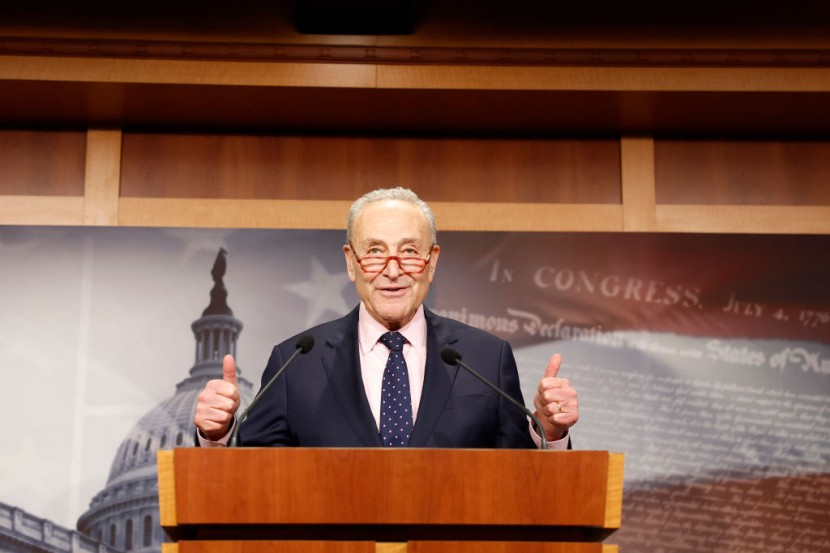The US Senate is set to vote on Wednesday night to pass a critical stopgap measure to prevent a partial government shutdown.
Majority Leader Chuck Schumer announced this move, highlighting the situation's urgency, as per to Reuters.
US Senate and House Unite to Prevent Shutdown

The Senate's decision aligns with the short-term government funding bill that the House successfully passed on Tuesday night, just days before the looming shutdown deadline on Friday.
House Speaker Mike Johnson introduced a two-step plan called a "laddered CR" (continuing resolution). This plan, if approved, will maintain government funding at 2023 levels.
It outlines an extension of government funding until January 19 for several key departments, including Veterans Affairs, Transportation, Housing and Urban Development, Energy, and military construction. The remaining government agencies would receive funding until February 2.
Senate Majority Leader Chuck Schumer previously announced the upper chamber's intention to collaborate with Republicans to expedite the bill's passage. While Senate bills often follow a lengthy and winding path before reaching a final floor vote, Schumer expressed a commitment to working with Minority Leader Mitch McConnell to fast-track the process.
Schumer stated, "If both sides cooperate, there's no reason we can't finish this bill even as soon as today, but we're going to keep working to see what's possible."
The impending Thanksgiving holiday and the lack of appetite for a government shutdown are expected to expedite legislative progress. Initially, the White House dismissed the GOP's proposal as "unserious." However, a White House official stated Wednesday that President Joe Biden would sign the short-term funding bill into law if it receives Senate approval, according to ABC News.
Read Also : North Dakota Judge Rejects Plea to Temporarily Suspend Gender-Affirming Care Ban for Minors
White House Urges GOP Aid Support Amid Shutdown Avoidance
The White House official urged the GOP to focus on passing the president's supplemental aid request for Israel, Ukraine, border security, humanitarian assistance, and other priority areas. Notably, the House-approved bill does not include this additional aid for Israel or Ukraine.
The Senate's approval of the stopgap bill sends it to President Biden's desk for final signature before the weekend deadline.
Democratic Senate Majority Leader Chuck Schumer celebrated the smooth and swift resolution, emphasizing, "No drama, no delay, no government shutdown."
Speaker Mike Johnson, who succeeded Kevin McCarthy, crafted the stopgap funding bill, which garnered broad bipartisan support-a rarity in modern US politics. Democrats expressed satisfaction with the bill's adherence to spending levels established in a May agreement with President Biden.
Importantly, it did not contain contentious provisions related to abortion and other divisive social issues.
Republicans, on the other hand, expressed their eagerness to avoid the risks associated with a government shutdown, which would impact national parks and disrupt various critical functions, including scientific research and financial regulation.
Despite the bipartisan support, hardline members of Johnson's 221-213 Republican majority voiced their displeasure with the compromise. They pledged to revisit federal spending when the current funding period expires.
The legislation, if enacted, will extend funding for several essential areas, including military construction, veterans benefits, transportation, housing, urban development, agriculture, the Food and Drug Administration, and energy and water programs, until January 19. Funding for all other federal operations, including defense, would expire on February 2.
While the government's funding battles have dominated recent headlines, these repeated conflicts have prevented lawmakers from addressing other crucial proposals, including President Biden's request for $106 billion in aid for Israel, Ukraine, and US border security.
As the Senate votes to avert a shutdown, the nation grapples with the intricacies of its financial obligations and policy priorities, Mail Online reported.
Related Article : American Immigration Council Map 2023: Immigrant Contribution to US
© 2025 HNGN, All rights reserved. Do not reproduce without permission.








